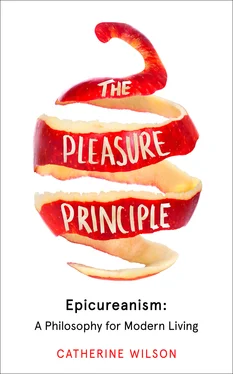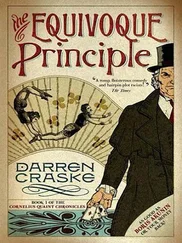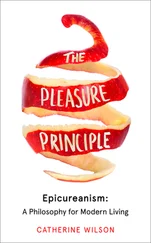In the Middle Ages and in the early modern period, there could be tension and conflict between the Church’s own wealthy hierarchy of the Pope, the archbishops, the bishops and the lesser clergy and the secular emperors, kings and princes. Both had the power to raise revenues and to make rules. No ordinary person, no peasant farmer, or merchant, or artisan, or small landowner could doubt that the power to command, punish and reward descended from above. The forms these commands, punishments and rewards took did not depend on the agreement of those affected, but only on the social class into which they were born. As a result, there were different legal standards for the privileged and the poor, for men and women, and for different categories of persons such as the hereditary nobility and the clergy. The relative invulnerability of the socially powerful permitted extraordinary abuses: the waging of private wars and raids to increase wealth and dominion; the execution of rivals and confiscation of their estates; favouritism towards the incompetent; and the sexual abuse of women and children.
In the medieval and early modern periods, it has been estimated that 80–90 per cent of the population of the Holy Roman Empire were peasants or renters, tied to the land, paying tithes, rents or taxes to their landlord and serving as soldiers when required. The clergy, the aristocracy and craftspersons made up the rest of the population. Indoctrination in the form of weekly sermons inculcated the duty of obedience. Revolution, a literal turning upside down of social relations, putting those at the bottom on top and those on top at the bottom, was seen as a crime against God and nature. The assurance that Heaven awaited those who endured their sufferings and deprivations and patiently practised humility was offered on a weekly basis. The sufferings and deprivations of the people were by implication trivial as compared to those of the great martyrs, including Jesus himself, as the iconography of the churches emphasised.
Did those at the bottom passively accept their subordination? Were their lives uniformly miserable? As historians have shown us, village life had its share of joys and sorrows. Yet history is dotted with slave revolts and peasant uprisings prompted by taxation demands and starvation. Most rebellions were successfully put down, yet massive changes occurred between the 17th and mid-19th centuries. The transformation of these feudal societies based on the privileges and duties of the different social ranks into commercial societies based on the idea of contracts between equals has been studied from many points of view. The recovery of the Epicurean history of humanity, the distinction between nature and convention, and the Epicurean conception of justice as an agreement to avoid harming and being harmed, played an important role in rethinking questions about the legitimacy and scope of worldly powers.
Up until the mid-17th century, when Thomas Hobbes appeared on the scene, the idea of natural domination as well as the idea of divine legislation went largely unquestioned. Hobbes’s revival of the Epicurean idea of the ‘social contract’, which I’ll explore in Chapter 12, though it is still authoritarian rather than democratic, is the basis of much modern political theory, with its clear insistence that government exists only for the good of the governed.
One of the most important insights to take away from Lucretian prehistory and its reworking is that the purpose of political authority is to reduce interpersonal violence and to make life secure for all. A second insight is that our political and legal systems have been shaped by chance discoveries and new technologies. A third is that while life under civilisation offers a range of marvellous goods and experiences, uncontrolled and concentrated wealth and ambition make exploitation, warfare and corruption inevitable.
There is no cosmic plan in history, no destiny towards which we are inevitably travelling. No divinity is guiding us or watching out that we do not make mistakes that unleash nuclear war or that render most other species extinct and the earth uninhabitable. Chance discoveries are still possible, and human ingenuity is seemingly inexhaustible. But the search for power and gratification by the few at the expense of the many is an inevitable feature of civilisation that could be better controlled than it is, even if it can never be banished once and for all.
Another important insight emerges from the Epicurean history of humanity. Human beings invented government. We like to think of government as authority awarded to those most deserving of it, to people who have proved their commitment to the general welfare and their understanding of how the world works by presenting their beliefs and plans to the public, and by standing up to interrogation in competition with others. But we need to keep in mind that modern governments are the successors of originally kleptocratic, clan-based regimes that relied on secrecy, conspiracy, violence and intimidation to obtain and retain power and wealth and to practise violence against other groups. To a greater or lesser extent, they have either retained or shed the earlier characteristics of government. The best governments are those that have transcended their origins, rejected the seizure of power by force and fraud, and are now dedicated not to the enrichment of the clan, but to the welfare and best interests of the governed. The worst governments are those in which most of the original features of government are intact.
PART II
Living Well and Living Justly
Конец ознакомительного фрагмента.
Текст предоставлен ООО «ЛитРес».
Прочитайте эту книгу целиком, купив полную легальную версию на ЛитРес.
Безопасно оплатить книгу можно банковской картой Visa, MasterCard, Maestro, со счета мобильного телефона, с платежного терминала, в салоне МТС или Связной, через PayPal, WebMoney, Яндекс.Деньги, QIWI Кошелек, бонусными картами или другим удобным Вам способом.












